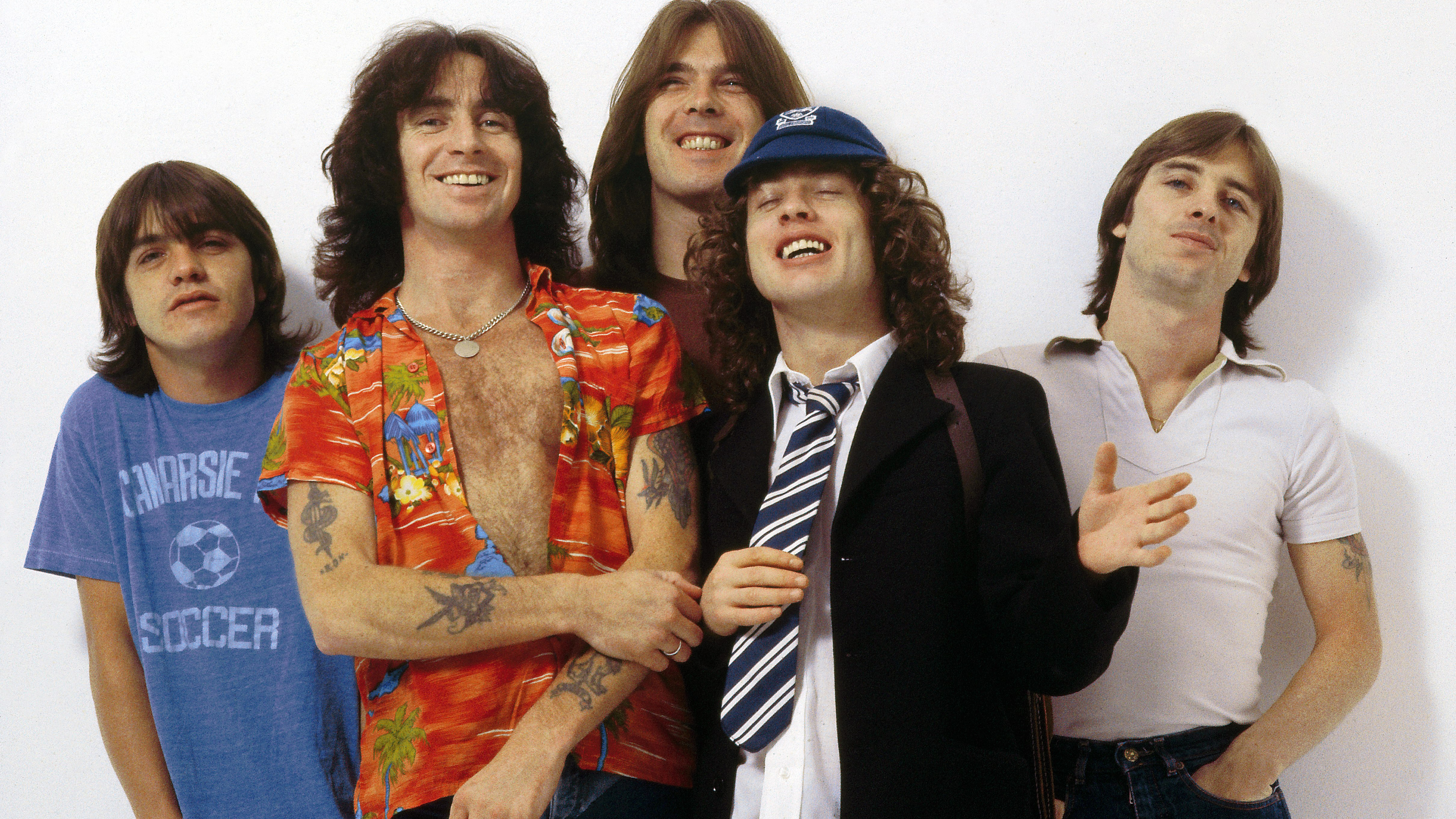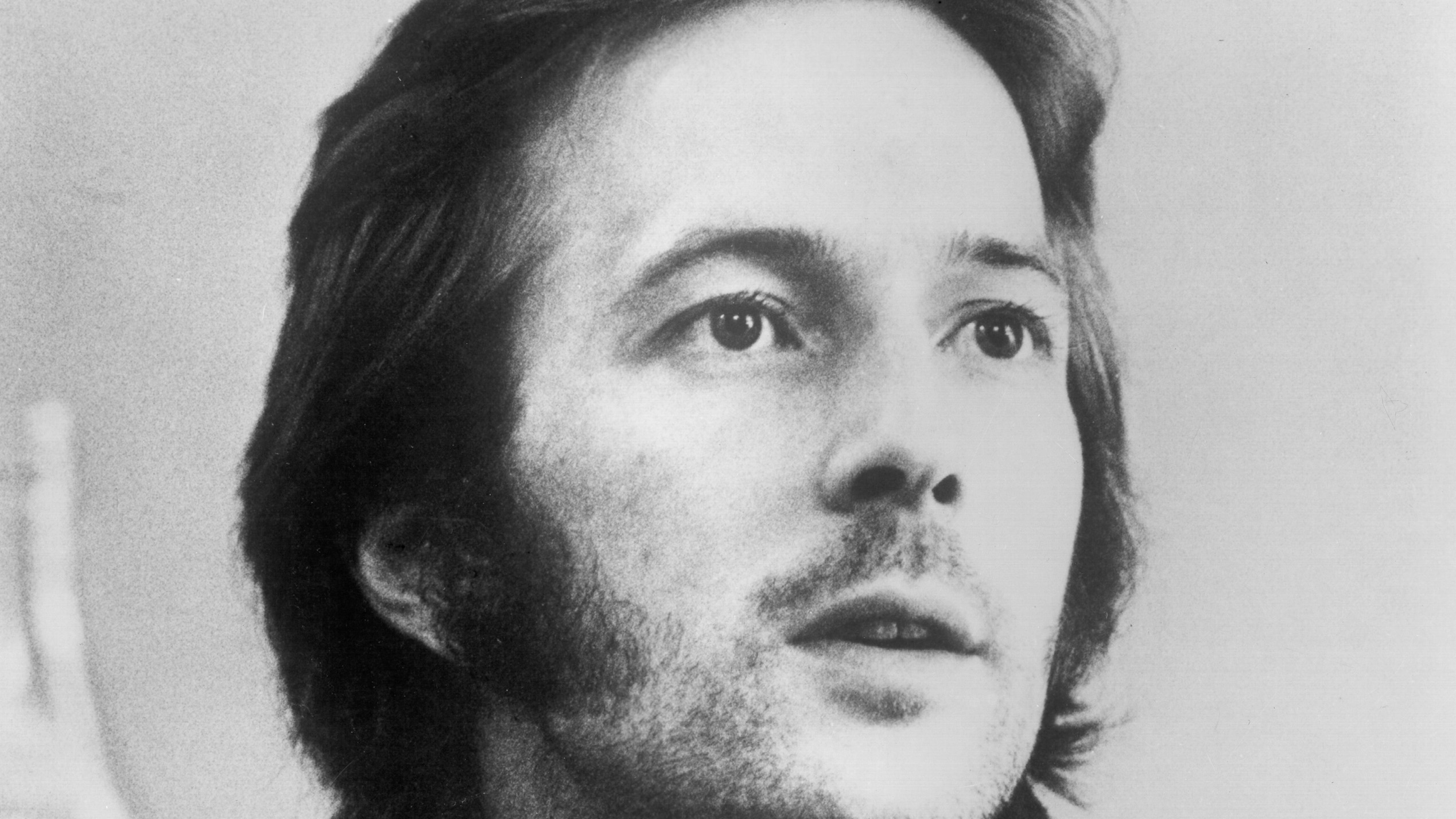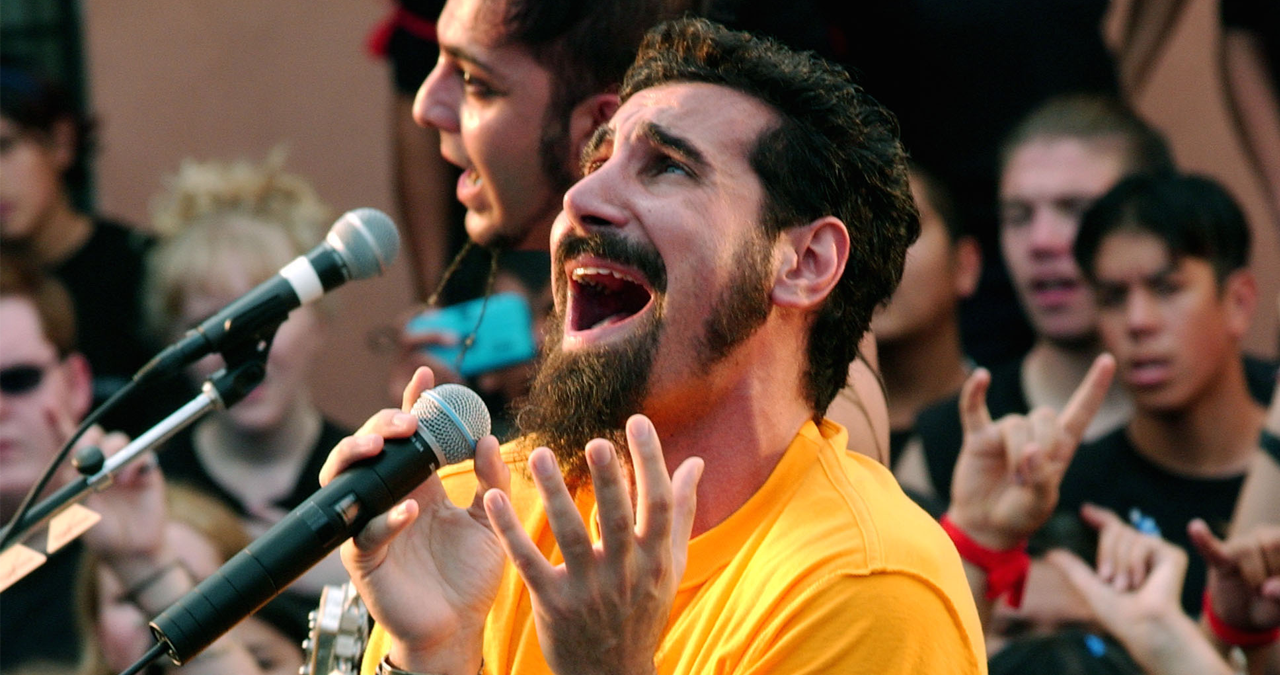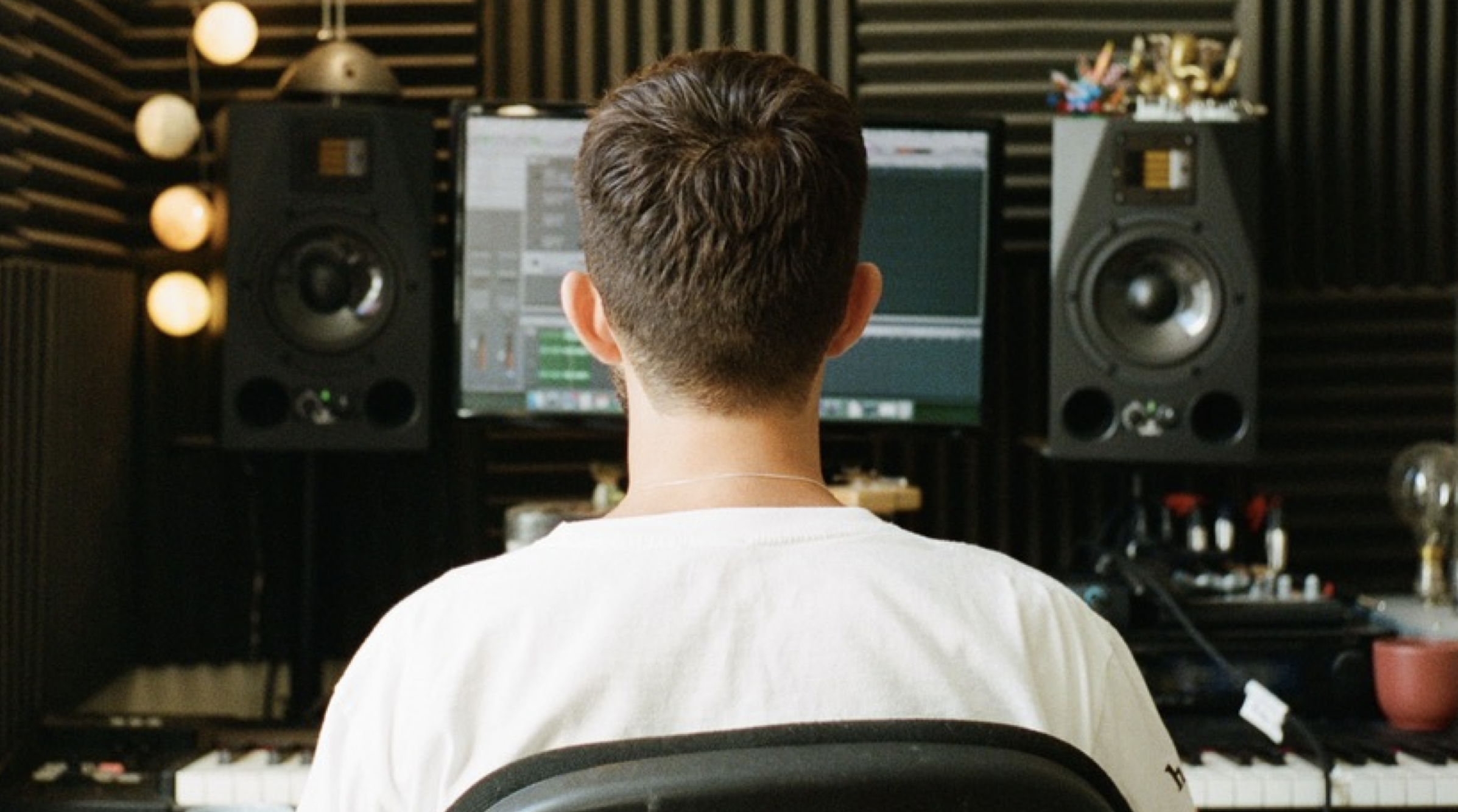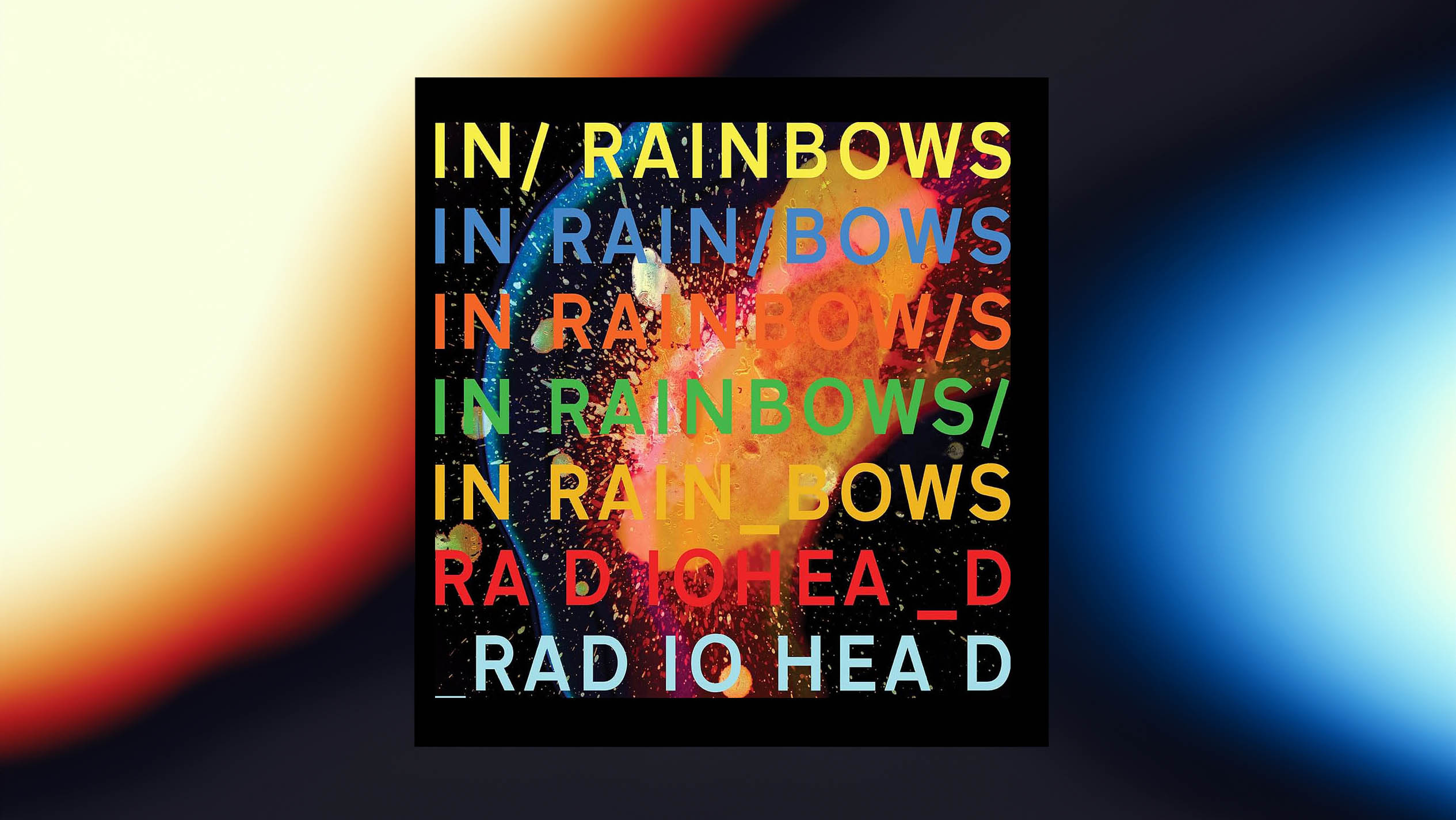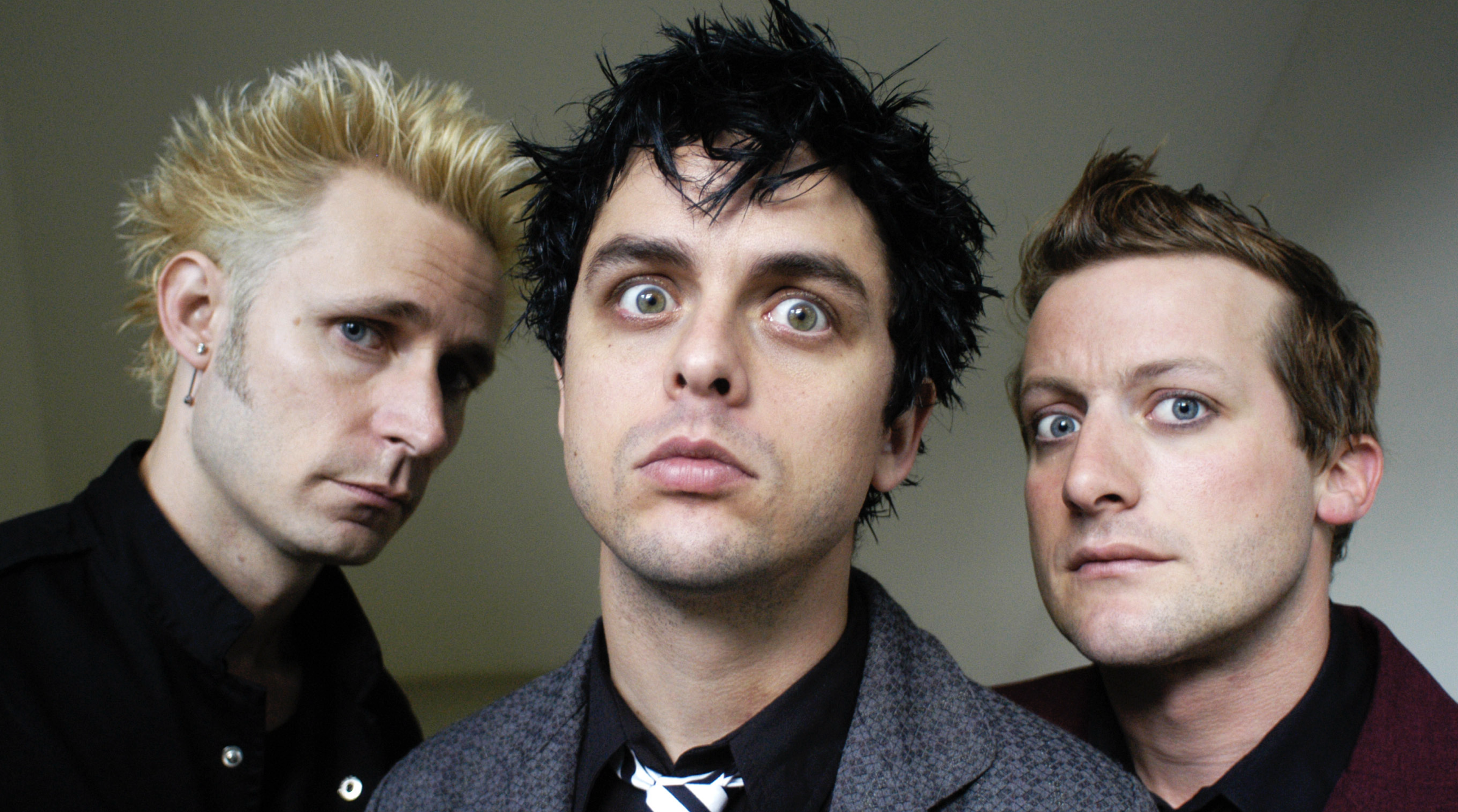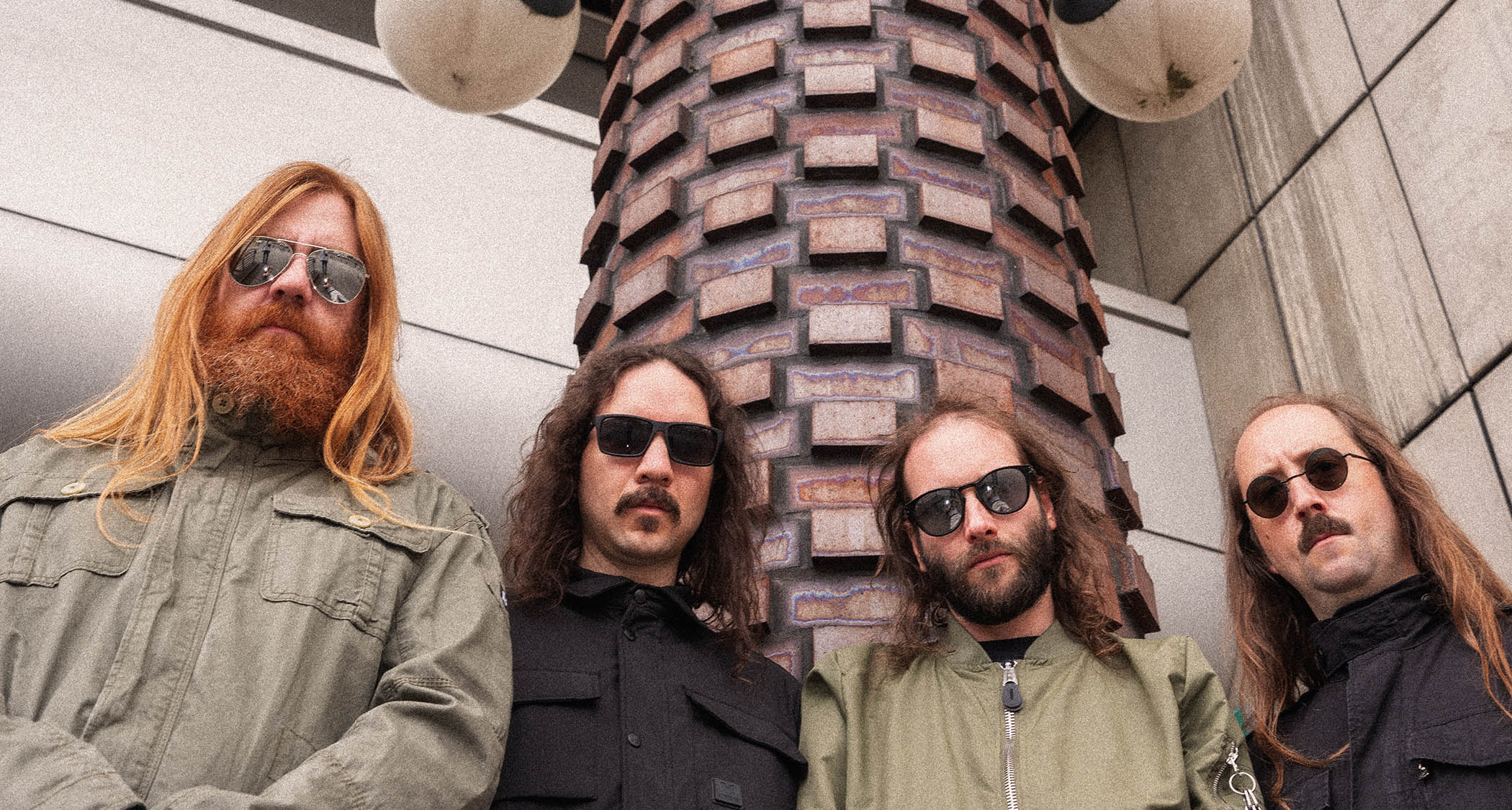Jack Lawrence-Brown on a self-imposed exile, Phil Collins’ toms and the return of White Lies
White Lies drummer lifts the lid on new record, Friends
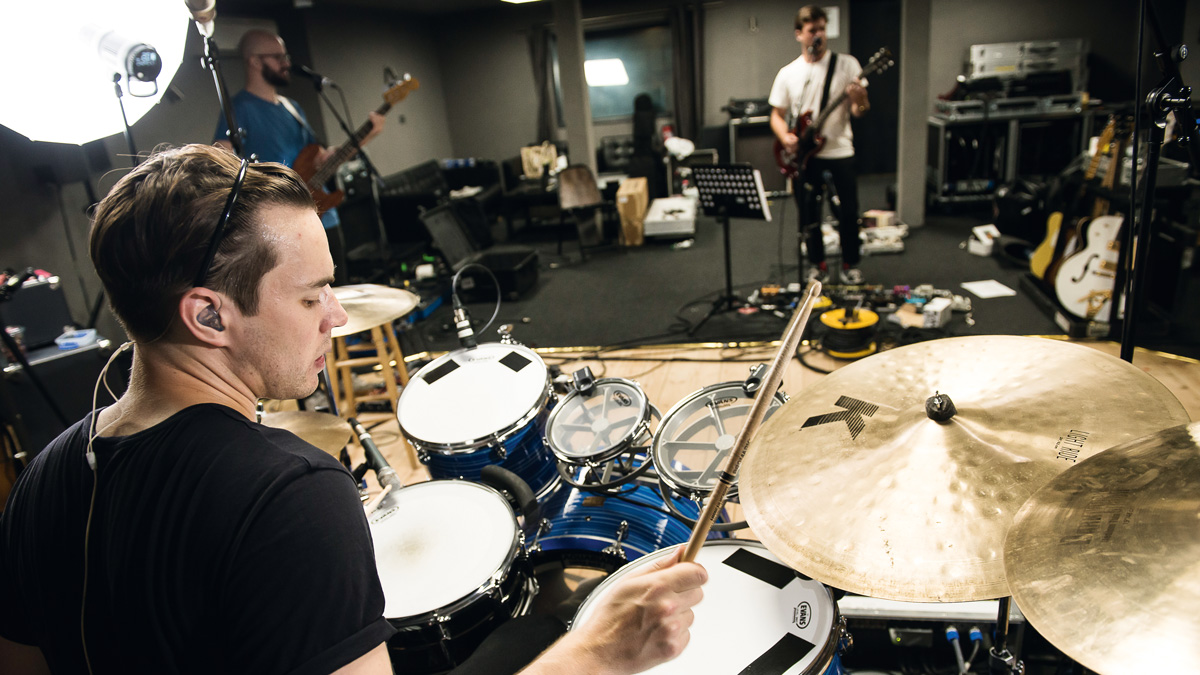
Back and bricking it...
When we last spoke with Jack Lawrence-Brown, his band White Lies had just followed-up their chart-topping debut album with Ritual, a record that would cement them as one the finest Brit bands of the decade.
That was a reputation only enhanced by the release of Big TV two years later, but since wrapping up the touring cycle that surrounded that album, all has been ominously quiet in the White Lies camp.
“We haven’t toured in the best part of two years, that’s a very long time for us,” Jack tells us. “Normally we don’t have more than a couple of months between tours. I’d be lying if I said I wasn’t absolutely bricking it at the moment!”
He’s ‘bricking it’ because White Lies are very much back. Not just with a six-date UK tour, but they also have a brand new record in tow. Friends is arguably the band’s strongest album to date, and undoubtedly their most aurally eclectic. For many bands concerns of how such an album would be received would be at the forefront of their minds, but for Jack there’s the little matter of getting back into the swing of live shows that is occupying his thoughts.
I’m nervous about going back onto a stage and being in front of people. It’s going to be intense to walk back onto a stage in front of a ton of people.
“We’ve got ten days of rehearsals booked and we’re in at the deep end a bit,” he says. “I think it will all just click. I’m nervous about going back onto a stage and being in front of people. It’s going to be intense to walk back onto a stage infront of a ton of people.”
We caught up with the Jack just as the band entered into their ten days of rehearsals. During our audience with the articulate sticksman we looked to get to the bottom of the recording of Friends, bouncing back from that extended break and how Jack is taking a slice of Phil Collins’ magic on the road with him.
You haven’t toured for two years, were you playing lots in the time since your last tour?
“I have been trying my best. But, you can’t ever compare to playing live. I have been conscious of it though. I have a drum room that I rent and I have spent many hours working in there while we were demoing the album. After we finished the album I had a month or so where I wanted to relax and not stress about anything, so I didn’t play for that month.
"I’m back into it now though and I’m feeling good. I’ve been working on my general fitness with the aim to being able to sit upright for an entire 90-minute show.”
What was the reason behind taking such an extended break?
“When we finished the last tour we said we wanted to take six months off because we had always been either on tour or making an album for the last eight years.
"After that last tour we also knew we weren’t going to do another album with the label we were on so we thought it’d be a good time to relax for a bit and then when it came time to writing a new album we were comfortable taking our time with it. We liked working in that way.
"We wanted to write the whole album without a label and then take it to a label that was keen for us to make that album. We didn’t want to give a label a nasty surprise when we had some songs that were different to what we had done before.”
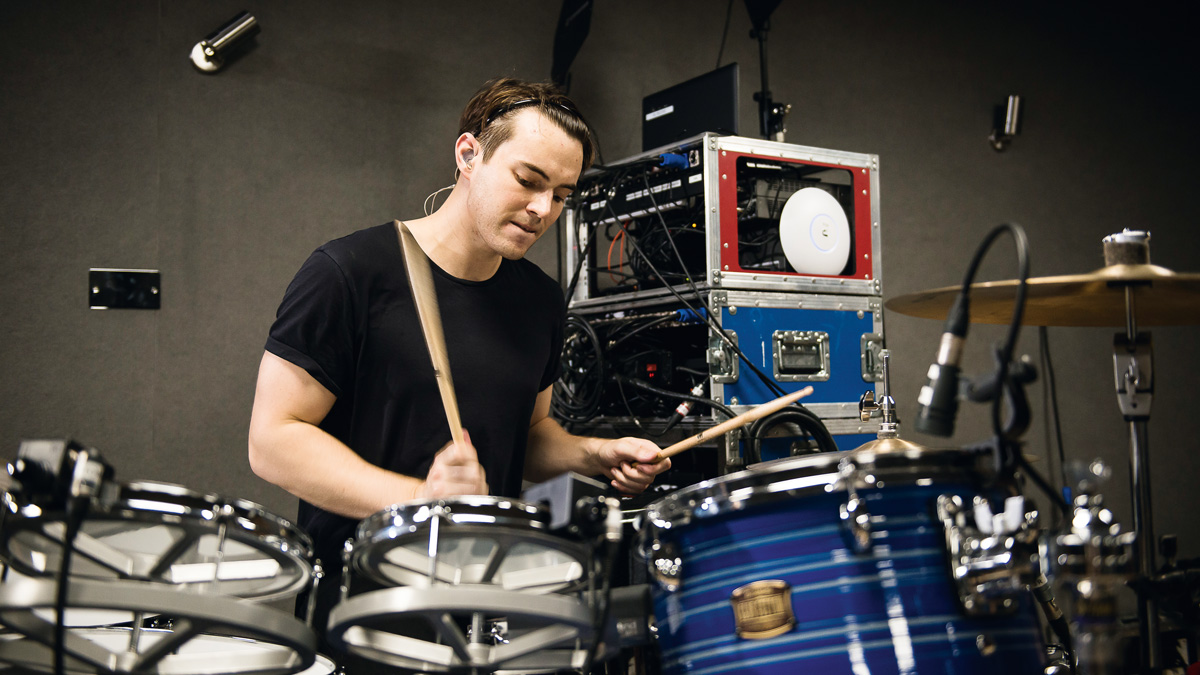
Here come the roto toms
Given the musical climate where bands are said to make the bulk of their money on the road, taking that time off must have been viewed as being a risk?
“Financially it’s tough because touring is our bread and butter and where you can make some profit as a band. So yeah, it was a risk. We weren’t too worried about our fans not being excited when we came back though because we have built up a keen fan base over three records. That said, I was nervous before we dropped the first single from this record and announced our live dates. I wondered whether anyone would care but the live dates flew off the shelf.”
Doing that also shows that there is a real confidence in the band and in this new album
“We were super conscious that album four needed to be a really strong record. Our feeling was that with hindsight our first album was a really good album and one that we’re proud of. I had an amazing moment with Harry [McVeigh, vocals] where we were at our local Thai restaurant in London. They know about the band and one night while we were in there they put our first album on, as a bit of a laugh really. It was awkward to start with and I hadn’t sat and listened to that album for a few years but we sat there thinking, ‘This sounds great!’ The second album, we had to rush that and we’re not happy with it looking back. The third album we were really pleased with. The fourth album, we needed to get it right. If you’re going to make a fourth album it needs to be by far the best thing you’ve done to date and it needs to diversify what you’re doing. With Friends we’ve been able to do that.”
I went to Wembley Drum Centre and bought the cheapest set of roto toms that I could. I got some weird looks.
Did producing it yourselves have a big impact on your drumming? Did it give you greater freedom?
“What I put down in the studio is usually based off a simple drum loop that the guys write to. The first thing to do in the studio was to go through all of those loops and decide if we wanted to keep any, and we have kept some of them. That’s always a slightly weird thing, that’s the part of being a drummer where you have to remember that the machines aren’t your enemy. We used some of those loops as foundations to work from. I enjoy playing off drum loops.”
Was it daunting to have to get to grips with dialling in kit tones?
“We had an idea of what to do musically but we had no idea how to make a drum kit sound s*** hot. So we invested in a great engineer. We got James Brown who has done Foo Fighters and Arctic Monkeys. He didn’t have much time so we had to cram in the drum takes a little bit.”
It worked, the album has a nice, natural drum sound throughout
“We were recording in Bryan Ferry’s studio and that has quite a small drum room so we had to go for a tighter drum sound. We then had this over-the-top tom sound that we overdubbed. It’s very Phil Collins. Those sounds can sit quite nicely on top of the backing tracks and the kit. I’ve been um-ing and ah-ing for ages about getting those sounds live. We have some songs where we have acoustic toms and the overdubbed sounds so we couldn’t just trigger the acoustic toms that we have. So, I went to Wembley Drum Centre and bought the cheapest set of roto toms that I could. I got some weird looks. I’m going to trigger those. I decided to do that rather than use pads because I’ve never got on with playing rubbery pads. We will have 8” and 10” roto toms and trigger the big tom sounds through those. I think it will be fun because I’m certain that roto toms have such a clear sound that the overhead mics will pick them up a little bit. It will be nice to have a little smidgen of roto tom in 2016. They look good as well.”
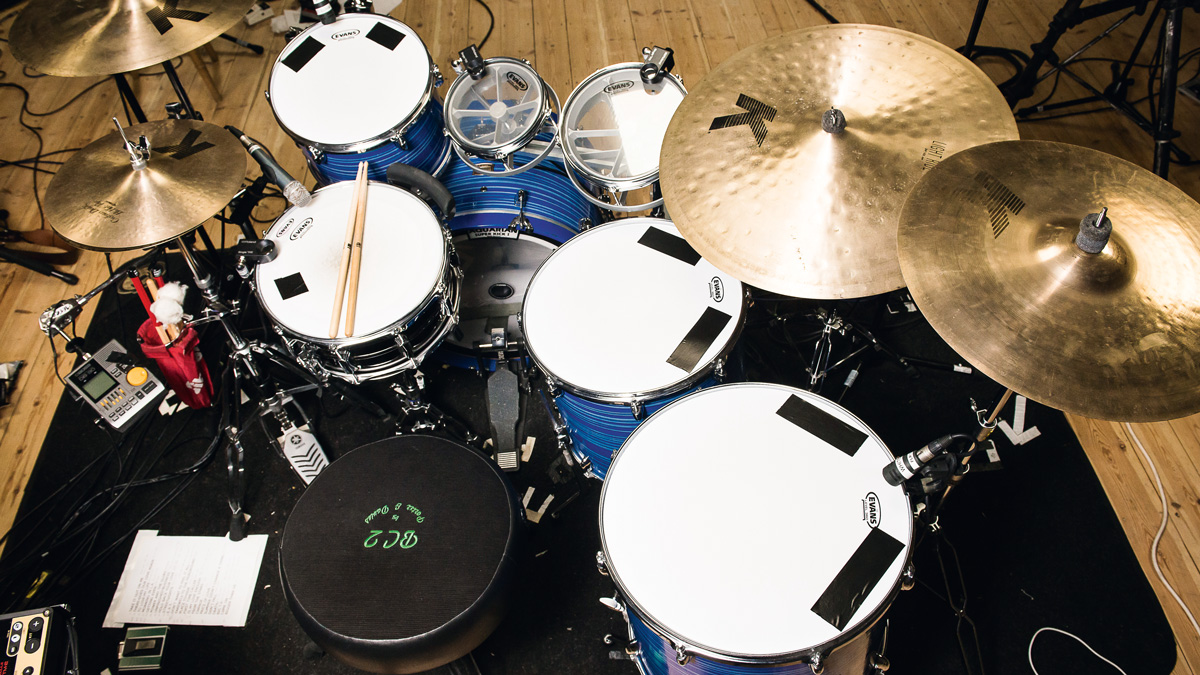
Jack's kit
What kit were you using on Friends?
“I’m friends with Jesse Quin the bass player from Keane and he put me in touch with the drummer from Keane, Rich [Hughes]. Rich has all of this beautiful gear and he leant me some of that for this album. I used a Slingerland kit and it had so much character. We’ve never used kits with character like that before, usually we use big modern kits with lots of effects on them.”
You mentioned being under time constraints due to the engineer’s schedule. Did that help focus you knowing that you couldn’t spend weeks getting drum takes?
“It was a blessing and a curse. We tried to get three or four drum tracks done a day. That adds up to six or seven hours at a kit. As a rock band some of that is hard playing and we have some faster songs on this album at between 170 and 210 bpm which is hard work if you’re playing it again and again. I think I handled that pressure well. But, there was another side to it where there is a song on the album called ‘Swing’ which has a slightly pushed groove to it. I knew the part I wanted but I wasn’t nailing the take. We ended up taking the groove apart, recording some parts separately and putting it back together. I learnt that you don’t have to be precious about that. If you get a vibe-y take then it doesn’t matter that you’ve had to take it apart. We do a lot of separation anyway. We tend to start with hi hats, bass and snare and then record the toms separately. That just helps with the mix and gives you some nice clarity and punch.”
We tried to get three or four drum tracks done a day. That adds up to six or seven hours at a kit. As a rock band some of that is hard playing and we have some faster songs on this album at between 170 and 210 bpm which is hard work if you’re playing it again and again.
When interpreting those demo loops do you tend to stay faithful to the original part?
“There’s some songs where I’ve interpreted what was there on the demo in a basic way and almost played the demo loop on the kit. ‘Morning In LA’ has a snare beat that changes between a massive clap sound and a solid snare sound and it is quite rigid. That verse pattern was pretty much taken straight from the demo loop. Musicians are there to facilitate the melody of the song so I don’t get fussy anymore about if someone wants me to play a demo beat. There may have been times previously where if that was suggested there would have been tears and tantrums but luckily we have all grown up enough to work out that everyone is aiming towards having a song that you’re proud of.”
Jack's Kit - Drums
Yamaha Club Custom drums
13”x8” rack tom
16”x16” floor tom
18”x16” floor tom
24”x18” bass drum
C&C snare drums
Ludwig Black Beauty snare drum
Cymbals
14" K custom dark hi-hats
24" K light ride
19" K Dark Thin crash
20" Avedis A Custom crash
Plus
Evans drum heads
Porter and Davies BC2
Roland Sound Bar
Rich is a teacher, one time Rhythm staff writer and experienced freelance journalist who has interviewed countless revered musicians, engineers, producers and stars for the our world-leading music making portfolio, including such titles as Rhythm, Total Guitar, Guitarist, Guitar World, and MusicRadar. His victims include such luminaries as Ice T, Mark Guilani and Jamie Oliver (the drumming one).
Zak Starkey is back in The Who. “I take responsibility for some of the confusion… Zak made a few mistakes and he has apologised”, says Pete Townshend
“I oversaw every element - not just the music and the lyrics and the melodies and the production, but also the merch and the fan clubs and everything”: Mike Portnoy talks about his years away from Dream Theater
Zak Starkey is back in The Who. “I take responsibility for some of the confusion… Zak made a few mistakes and he has apologised”, says Pete Townshend
“I oversaw every element - not just the music and the lyrics and the melodies and the production, but also the merch and the fan clubs and everything”: Mike Portnoy talks about his years away from Dream Theater

